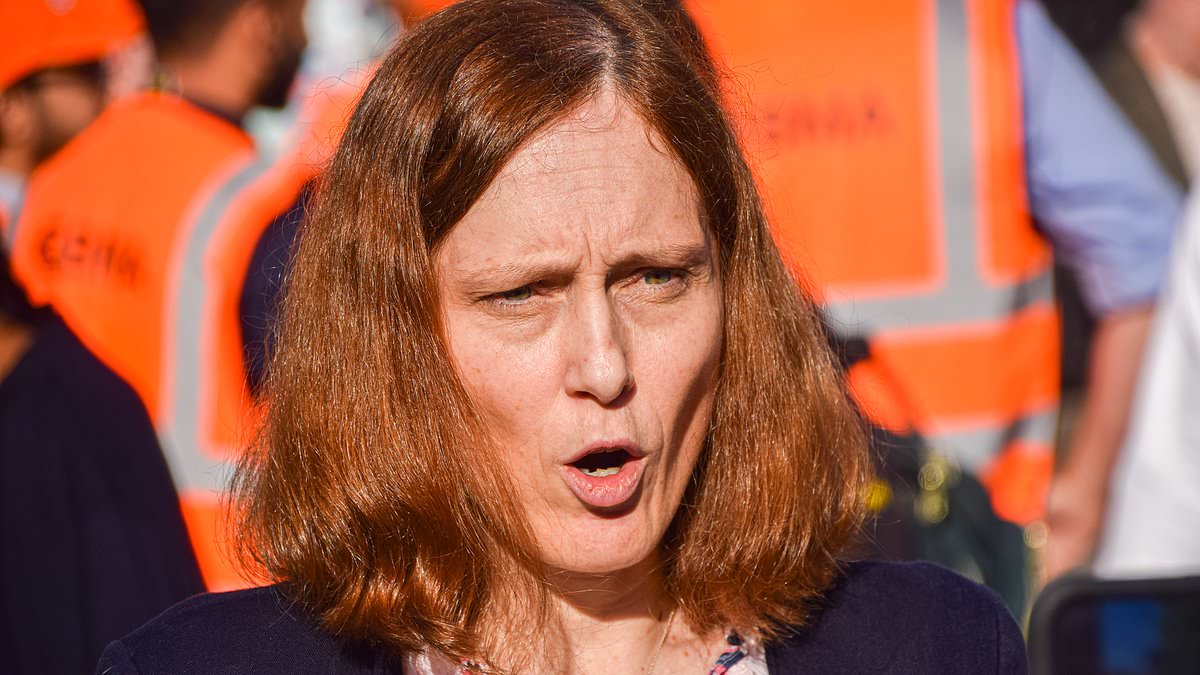Resident doctors have squandered the ‘considerable goodwill’ they had with Government after staging five days of strikes, Wes Streeting has said.
In a letter to British Medical Association leaders, the health secretary said he ‘never left’ the negotiating table and remains ready for further talks.
He describes the union’s actions as ‘deeply disappointing’, ’entirely unnecessary’ and ‘self-defeating’, adding: ‘Had you and your committee not rushed to strike, we would be in the second of the 3 weeks I asked for to work intensively together to improve the working lives of your members.’
The Labour MP for Ilford North reiterated that the Government ‘cannot move on pay’, but is ‘prepared to negotiate on areas related to your conditions at work, career progression and tangible measures which would put money in your members’ pockets’.
Resident doctors – formerly known as junior doctors – are taking industrial action in pursuit of a 29 per cent pay rise.
They have already received above inflation pay rises for the past three years, worth an extra 28.9 per cent in total, following previous strikes.
Fewer patients were affected by the recent walkout due to better NHS planning and greater willingness among staff to cross picket lines, officials say.
Hospitals were ordered to press ahead with as much pre-planned care as possible during the latest walkout, which ended at 7am yesterday [WED].
This is in contrast to previous rounds, when a lot of routine care was cancelled in advance, so remaining doctors could focus on urgent patients.
Hospital bosses also reported waning support for the BMA’s actions among its own members, with more resident doctors reporting for duty this time.
Sources say the proportion engaging in strikes fell from around 80 per cent to 60 per cent.
Details on the number of appointments, procedures and operations postponed as a result of the industrial action are expected to be published later today [THU].
Mr Streeting thanked all NHS staff who worked during the strike, adding: ‘We made the decision to cancel as little planned care as possible this year, and thanks to their tireless work it’s clear that far more patients have got the care they need than in previous years.
‘That said, all industrial action comes with a level of disruption, and I feel angry and frustrated on behalf of those patients who didn’t get the service they expect due to these strikes.’
Rory Deighton, from the NHS Confederation, which represents NHS organisations, said: ‘Many patients will not have experienced any disruption whatsoever to their care and that is thanks to the NHS doing its best to keep the show on the road.
‘It is welcome to hear from members that in many places fewer resident doctors have gone on strike and the impact has been less severe than previous walkouts.
‘This does not take away from the frustration and inconvenience of patients who have had their vital care delayed and are now facing even longer waits in pain and discomfort.’
It comes as new polling shared exclusively with the Daily Mail shows public support for striking doctors continues to fall.
Only a third (33 per cent) of Britons say they support resident doctors’ strike action, while almost half (47 per cent) oppose it.
In two weeks, net support for the strikes has dropped from -10 to -15, and even Green voters – initially the most supportive – have swung from being in favour of industrial action (+27) to being opposed overall (-10), More in Common found.
Dr Tom Dolphin, chairman of the BMA’s council, told Times Radio: ‘What’s happened this time is that NHS England has been a little bit reckless, to some extent, about insisting that hospitals try to continue as much planned elective care as possible.
‘Hospitals need to make sure that emergency and urgent care goes ahead (and) patients on the wards get looked after.
‘To do that safely on strike days, when you’re going to have potentially up to half of your medical workforce not there, you’ve got to release those senior doctors from the planned care to go and do emergency and urgent care, because they can’t be in two places at once.
‘If you try and do the other work, if you’re asking those senior doctors to be in two places at once, that’s where the risk arises.’
